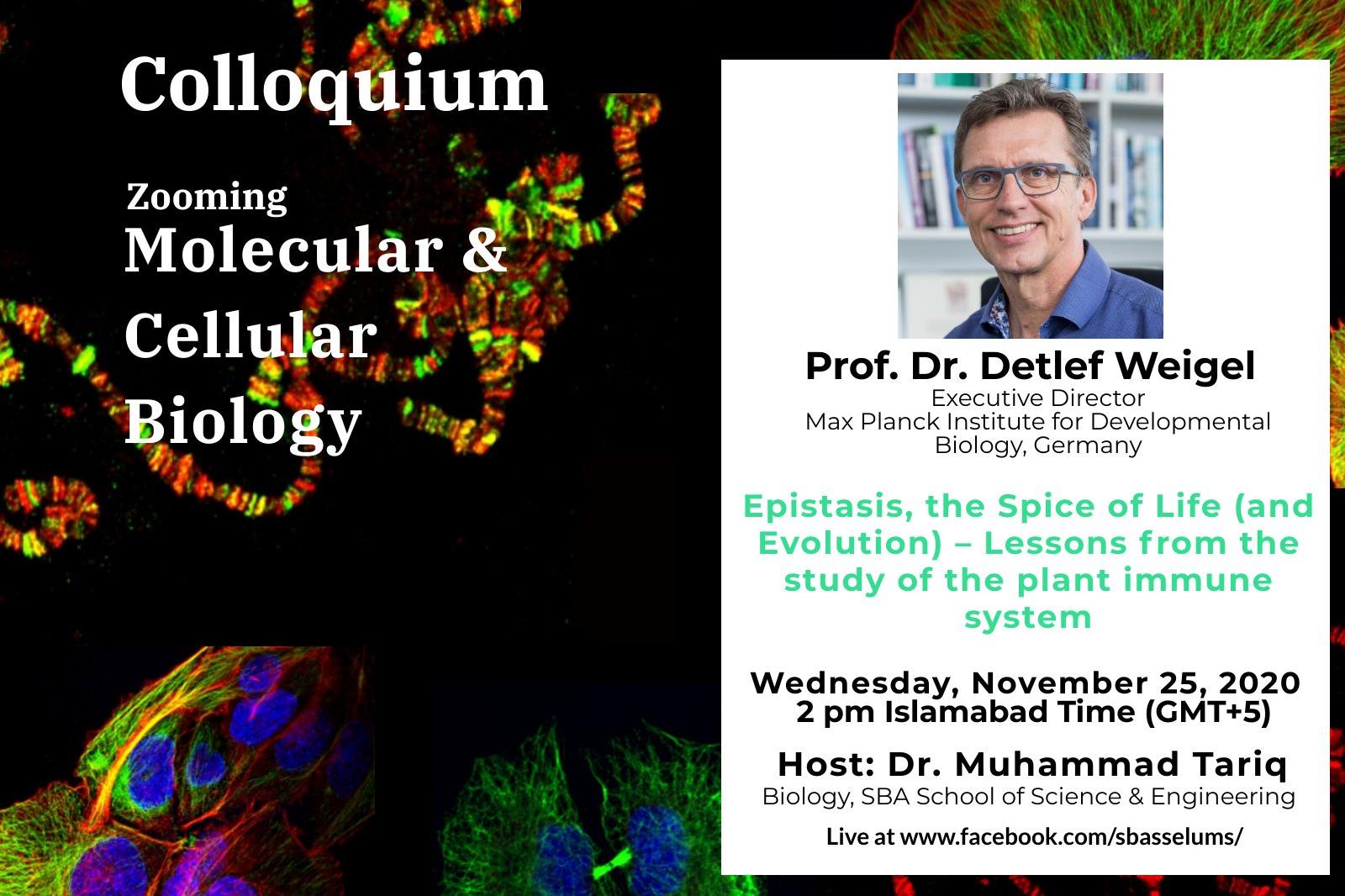
Epistasis, the spice of life: Lessons from the study of the plant immune system
Colloquium zooming Molecular & Cellular Biology
We went LIVE with Prof. Dr. Detlef Weigel on 25th November 2020 for our seminar on the topic of Epistasis, the spice of life: Lessons from the study of the plant immune system. Prof. Dr. Detlef Weigel is the executive director of the Max Planck Institute of Developmental Biology, Germany.
About the speaker:
Detlef Weigel, a German-American scientist, is currently Executive Director of the Max Planck Institute for Developmental Biology. He is a member of the US National Academy of Sciences, the German National Academy of Sciences Leopoldina and the Royal Society, and recipient of several scientific awards, most recently the Novozymes Prize of the Novo Nordisk Foundation.
The first major finding from his lab was that an Arabidopsis gene could dramatically accelerate flowering of trees; this established a proof of concept for Arabidopsis genetics as a platform for biotechnological discoveries. His group later discovered the first plant microRNA mutant and identified the factor that we now know to be the long sought-after mobile flower-inducing signal. Detlef was also one of the first to exploit natural genetic variation for understanding how the environment affects plant development. In recent years, this work has come to incorporate questions at the interface of evolution and ecology: How can wild plants adapt to climate change, and how do they manage to keep their pathogens at bay? In this research, he draws on the fruits of a collaborative effort initiated over a decade ago to sequence the genomes of over 1,000 natural A. thaliana strains (The 1001 Genomes Project).
Detlef has an extensive record of service to the scientific community, having served on a series of editorial and advisory boards. He is a forceful advocate of open access publishing and founding Deputy Editor of eLife. He is also a co-founder of three biotech startups.

